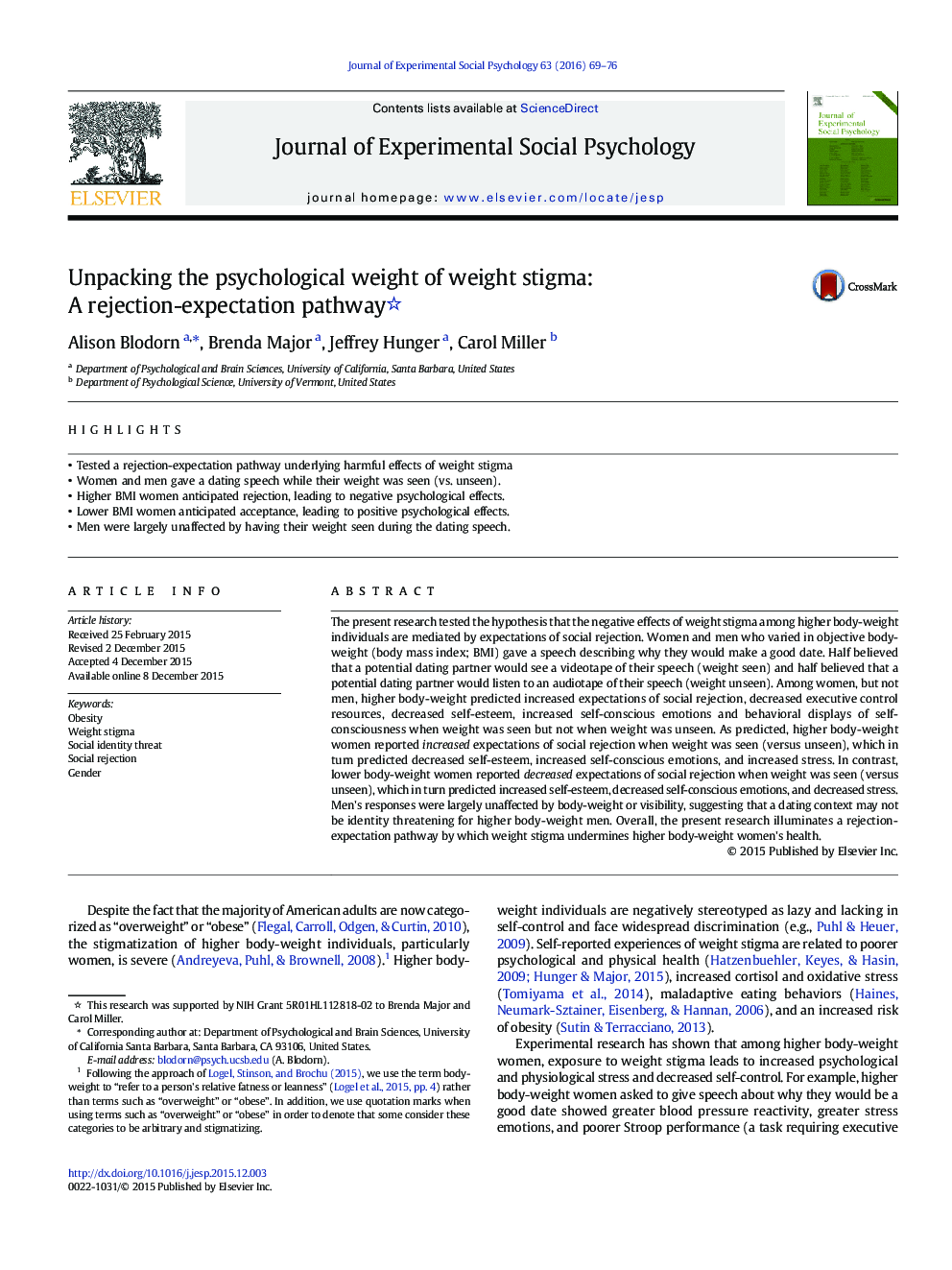| Article ID | Journal | Published Year | Pages | File Type |
|---|---|---|---|---|
| 7324432 | Journal of Experimental Social Psychology | 2016 | 8 Pages |
Abstract
The present research tested the hypothesis that the negative effects of weight stigma among higher body-weight individuals are mediated by expectations of social rejection. Women and men who varied in objective body-weight (body mass index; BMI) gave a speech describing why they would make a good date. Half believed that a potential dating partner would see a videotape of their speech (weight seen) and half believed that a potential dating partner would listen to an audiotape of their speech (weight unseen). Among women, but not men, higher body-weight predicted increased expectations of social rejection, decreased executive control resources, decreased self-esteem, increased self-conscious emotions and behavioral displays of self-consciousness when weight was seen but not when weight was unseen. As predicted, higher body-weight women reported increased expectations of social rejection when weight was seen (versus unseen), which in turn predicted decreased self-esteem, increased self-conscious emotions, and increased stress. In contrast, lower body-weight women reported decreased expectations of social rejection when weight was seen (versus unseen), which in turn predicted increased self-esteem, decreased self-conscious emotions, and decreased stress. Men's responses were largely unaffected by body-weight or visibility, suggesting that a dating context may not be identity threatening for higher body-weight men. Overall, the present research illuminates a rejection-expectation pathway by which weight stigma undermines higher body-weight women's health.
Related Topics
Life Sciences
Neuroscience
Behavioral Neuroscience
Authors
Alison Blodorn, Brenda Major, Jeffrey Hunger, Carol Miller,
